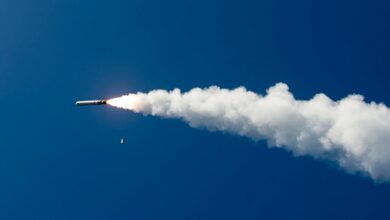
A major part of ensuring America’s national security is addressing dangers before they cause real harm.
While threats are sometimes obvious, others often go overlooked and don’t receive the attention they deserve. That’s the case with access to critical minerals such as lithium, nickel, copper, and cobalt.
These elements are essential for making modern technologies, and securing their supply chain should be a top priority.
Reliance on Foreign Imports
Although such critical minerals are an important part of American manufacturing, the country relies mostly on a supply of foreign imports.
Domestic production is hampered from a geological standpoint because deposits of many of these critical minerals do not exist in the US in significant quantities.
Additionally, years of stringent environmental regulation have created a reality where the processing of critical minerals and materials must be completed outside America.
Finally, similar to the Defense Industrial Base, the drive for production efficiency and an underestimation of potential threats has often overtaken prudent supply redundancies and supply chain resilience as a priority.
China’s Dominance
Recognizing America’s vulnerability of a lack of critical mineral access, China has been taking advantage of current geopolitics to further entrench itself as the go-to source globally for critical minerals.
At the moment, the communist country dominates the global marketplace through control of both the production and processing of these strategic resources.
A June 2021 White House report laid out a concerning case of just how dominant China has become in this space.
By “operating well outside globally accepted practices” China has effectively cornered 80 percent of the world refining market for cobalt while also controlling a majority of lithium refining operations.
In contrast, the United States refines zero percent of global cobalt. This poses a clear and growing threat, with warning signs all around us.
For example, as the US increasingly electrifies its transportation and ground logistics fleet, its domestic economy could be thrown into chaos if the supply chain for these next-generation batteries is disrupted.
As it stands, China already produces three-quarters of all lithium batteries, with one Chinese company alone accounting for 30 percent of the global electric vehicle battery market.
Even more serious, the US military would likely find itself at a strategic point of failure should access be cut off, potentially rendering it unable to produce and wield the technologies needed to win in the future.
Critical and rare earth minerals are used in a wide range of military applications, from communications equipment and precision-guided weapons to night-vision goggles and stealth technology.
Losing even further access to the materials to produce such a kit would jeopardize preparedness.

Overcoming the Challenge
The challenges facing the United States are clear. Overcoming them will take a comprehensive approach.
As a positive first step, government officials are becoming increasingly aware of the growing critical mineral vulnerability this nation faces.
President Joe Biden last year addressed the issue with an executive order that called for the government to coordinate a 100-day review to encourage “resilient, diverse, and secure supply chains to ensure our economic prosperity and national security.”
The order specifically noted the importance of innovations like lithium-ion batteries to military preparedness, noting that high-capacity battery technologies will be critical to future military endeavors.
A report subsequently assessed existing critical mineral supply chains and identified key gaps in the US supply chain for next-generation battery technology. It noted such innovations require “an ecosystem of innovation, skills, and production facilities that the United States currently lacks.”

Proactive Measures
America must take proactive measures to establish a more reliable supply chain of critical minerals and materials to end its reliance on China. This will take more than simply bolstering production domestically, however.
The United States does not maintain the natural resources to meet its needs and has fallen too far behind to counter the near monopoly China has established single-handedly.
Although increased domestic production will help, Washington needs to truly make itself independent of Chinese supply chains by working with friendly multinational companies based beyond its borders that already have access to the elements that are needed. This requires a whole-of-government strategy to overcome this increasingly urgent issue.
China’s calculated marketplace domination of critical minerals is increasingly an economic and national security risk to the United States.
Particularly in times of major power competition or conflict, this communist country could and likely would use its market domination to distort prices at will or, worse yet, seek to cut off access to these resources entirely.
America can ill-afford this considering how important critical minerals are to current and next-generation military preparedness, as well as our nation’s economic element of national power.
Current efforts in Washington are a good start, but more work must be urgently pursued to establish reliable supply chains for strategically important minerals and materials.
 Major General Bob Dees, US Army, Retired, has a breadth of national security expertise, including development of high technology weapons and communications systems. He is President of Resilience Consulting LLC, promoting individual, leader, and national resilience best practices.
Major General Bob Dees, US Army, Retired, has a breadth of national security expertise, including development of high technology weapons and communications systems. He is President of Resilience Consulting LLC, promoting individual, leader, and national resilience best practices.
The views and opinions expressed here are those of the author and do not necessarily reflect the editorial position of The Defense Post.
The Defense Post aims to publish a wide range of high-quality opinion and analysis from a diverse array of people – do you want to send us yours? Click here to submit an op-ed.











